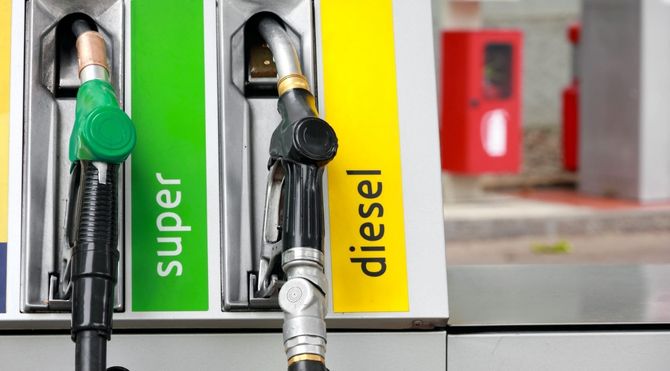
The main ingredient of both diesel and gasoline is petroleum. But it consists of different hydrocarbons. Diesel is heavier than gasoline because it is produced from light fractions of gasoline crude oil. Diesel, on the other hand, comes from oily components. Another difference is that gasoline is more flammable. Diesel either explodes or burns when exposed to high temperatures.

Difference between diesel and gasoline engines :
Engines running on gasoline and diesel are frequently used in the internal combustion engines class. Although the working principles seem to be the same, there are some interesting differences. Each has advantages over the other. Both engines have 4 time principles. Intake, compression, combustion and exhaust. There are differences between engines due to the different ways the fuels burn. Gasoline evaporates easily. Lowest flash point: -43*C Very volatile. For this reason, it mixes effectively with air. As a result, a small spark previously mixed with air can provide sufficient combustion in the engine. Diesel, on the other hand, does not mix properly with air. Highest flash point: 52*C Less volatile. However, if diesel is sprayed into high temperature air, spontaneous combustion occurs. This means that in gasoline engines, air and fuel must be mixed beforehand. On the other hand, in diesel engines, the mixing of air and fuel occurs only during the combustion phase. For this reason, fuel injectors are used in diesel engines. Spark plugs are used in gasoline engines. You may have noticed that gasoline-powered engines run quieter and have less vibration than diesel engines. The reason for this is that the combustion of the fuel-air mixture previously mixed with air is smoother and better distributed in the combustion chamber. However, in diesel engines, the combustion process can occur anywhere in the combustion chamber and this can lead to an uncontrolled combustion process. To reduce excessive vibration and noise problems, diesel engines need more durable designs than gasoline engines. Gasoline engines are always preferred because they are lighter. Since diesel engines only compress air, it can be compressed to a greater extent without the risk of self-ignition. However, such a high compression ratio is not possible in gasoline engines previously mixed with air. The high compression ratio allows the engine speed to run much more efficiently. For this reason, diesel engines are more economical than gasoline-powered engines.

What happens if we put diesel into a gasoline-powered engine?
In a gasoline-powered engine, diesel fuel is not even ignited. The reason is simple: Diesel is less volatile and will not mix properly with air. and ignition will initiate no combustion. On the other hand, if you put gasoline into a diesel engine, you spray a very volatile fuel into the combustion chamber, which is very compressed and very hot. Rather than smooth combustion, this will cause wear and eventually damage engine parts. So this would be a big mistake for diesel and gasoline engines and you would cause a lot of damage to your car’s engine.
Working phase of gasoline and diesel vehicles :
Suction Process :
– The gasoline and air mixture is filled with the outward movement of the piston. Fuel and air are mixed from outside
– In diesel engines, only air is pumped into the cylinder. Fuel is given into the pumped air later.
Compression Process :
– In gasoline engines, when air and fuel are introduced into the cylinder at the same time, the compression ratio must be lower to prevent the fuel from igniting itself due to high temperatures.
– Since there is only air in the cylinders of a diesel engine, the compression ratio can be much higher. As a result of this compression, heat is produced that is high enough to ignite the fuel.

Ignition Process :
– Spark plugs are responsible for ignition in gasoline vehicles. A spark can be created by compressing the air and fuel mixture in the cylinder and igniting the spark plugs.
– One difference between gasoline and diesel vehicles is that diesel cars do not use spark plugs when igniting. The cylinders and pistons in diesel engines compress the air and fuel through pressure to the compression temperature and create a spark.
Finally Exhaust :
In gasoline and diesel vehicles, the fumes produced after the fuel is burned to produce power are expelled through an exhaust valve. And thus, the operating principle of the engine continues in a loop from beginning to end.
Leave a Reply